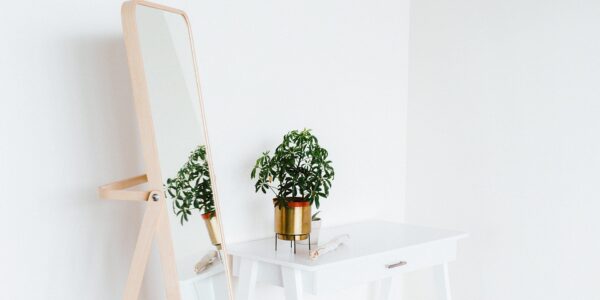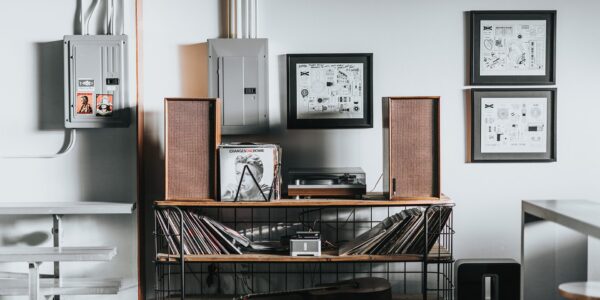Becoming an owner implies something more than choosing the location or type of ideal house.
Who hasn’t dreamed on some occasion of singing that melody, “home sweet home”? Buying a home is an important as well as exciting decision but, beyond the surreal concept of finding the house of your dreams, you will have to take into consideration a multitude of issues and, given the scale of the investment, it is best to take it easy.
A house overlooking the sea or a mountain retreat? A cosy flat in the centre of a great metropolis or a well-connected house in a quiet town? If you are familiar with these questions, pay attention, because we have gathered many other issues for you that will help you say with full conviction… Yes, I want to buy a house!
Things to keep in mind when buying a house
Let’s start at the beginning or, along the same lines, what questions must we ask ourselves prior to buying a house? Despite the complexity which the issue seems to involve, the truth of the matter is that the answer is simpler than you think and has a lot to do with your goals. It is not the same to buy a home for regular use as to buy a second place of residence, and much less, to do this as an investment.
However, all these approaches share many things in common that must be kept in mind when buying a house. Taxes, financing or documentation are some of these issues, although, depending on the final use to be given to the property, the task involves other questions that have to do with aspects such as location, services or communications.
What you need to know before buying a house
Becoming a homeowner is the dream held by the majority of the people but, what do you need to know before buying a home? The issue is that, at first glance, it involves in fact a myriad of details that, as we said above, will find their answers if you properly apply the questions that must be asked before buying a house.
If you have a clear idea regarding your dream house, the first thing you should know before buying the house is who the seller is. The real estate market offers different alternatives: from property development companies to individuals, including estate agencies. The same thing happens with the type of house that you are going to purchase; is it newly constructed property? Is it a second-hand house? Is it subsidised housing? Based on these issues, you will have to comply with various types of formalities.
Another question to ask before buying a house has to do with the state of encumbrances affecting the housing. Is the property subject to a mortgage? Are there any outstanding debts with the community? Are there any overdue bills involving municipal taxes such as the IBI (Property Ownership Tax), rubbish collection fees or similar?
Requesting a non-certified extract from the Property Registry, a certificate of the property manager or of the Town Council itself will help to dispel any doubt in that regard.
Other things to consider when buying a house include, making sure that the price is within market value and getting to know the different options in terms of financing or costs that you will have to assume as a result of the purchase (usually around 20% of the investment).
It is not the same to buy a home for regular use as to buy a second place of residence, and much less, to do this as an investment.
Requirements for buying a house
For sure, if you’re thinking of becoming a homeowner, one of the first questions that has come to your mind is; what is required for buying a house? It can all be summed up in three basic issues: choose the property in question, reach an agreement with the owner and pay the transaction costs. Quite simple, isn’t it? Well, in reality, it is a little more complex than this.
Although these three pillars constitute, in essence, the requirements for buying a house, these are open to certain practical considerations. Although it is not a formal obligation, for example, it is advisable when choosing a home, to take into consideration issues such as the location, total area, distribution, orientation, building specifications or conservation status, among others. However, in the case of second-hand housing, the seller will be liable for hidden defects found in the same during the six months following the sale.
But, upon fully examining the matter of what you need to buy a house, it is important to remember that the transaction is subject to certain obligations for the buyer and seller that, in practice, are divided as follows. As a buyer, you will need the necessary financing (savings or mortgage) to pay the price of the property, as well as a series of expenses including, among others, those derived from the deed of sale, VAT (if it is a new home) or ITP (for second-hand housing).
In turn, the seller must bear the notary fees for the execution of the deed of sale, as well as those arising from the cancellation of encumbrances, liens or mortgages, the local tax on property sales, and the IBI for the year of sale.
Another procedure that usually falls within the requirements for buying a house is the signing of the so-called earnest money contract. This document reflects the commitment of the parties in the transaction and, at the time of signature, a portion of the total price is usually paid as deposit.
- Steps to follow in order to buy a house
Do you still have doubts on how to buy a house? Don’t worry. While it is true that having all of the information can help you when defining the steps to follow in order to buy a house, it is no less true to say that, to obtain thorough knowledge in this regard, it is best to have the advice of professionals. However, here below are some tips for buying a house that will be very practical for you to start the process:
- Know the starting point: It is essential to tackle the task on how to buy a house. The first step will be to define your budget and, if necessary, to explore possible financing sources.
- Look for your home: From the location to available services, including the condition of the house, it is time to start looking. Take your time, have clear goals and visit as many houses as necessary until you find your ideal home.
- Gather information: Love at first sight? If you have found your dream house, now is the time to obtain all necessary information before making an offer. Building specifications report, encumbrances, the property situation with regard to the community, energy certificate… When it is clear that everything is in order, make sure you have the necessary financing and sign your earnest money contract to close the deal.
- Buy your house:To complete the steps for buying a house, all you need to do is sign the deeds of your new home, pay the taxes and expenses incurred in its purchase, take out a new contract for utilities (or change ownership on the same)…and, enjoy your new home!
It can all be summed up in three basic issues: choose the property in question, reach an agreement with the owner and pay the transaction costs. Quite simple, isn’t it? Well, in reality, it is a little more complex than this.
Related articles
Descubre promociones que te pueden interesar
Discover your new home with MiA
We have launched our virtual agent to help you find the property you are looking for.
Ask MiA and get personalized recommendations to find your dream home. Try it now!




